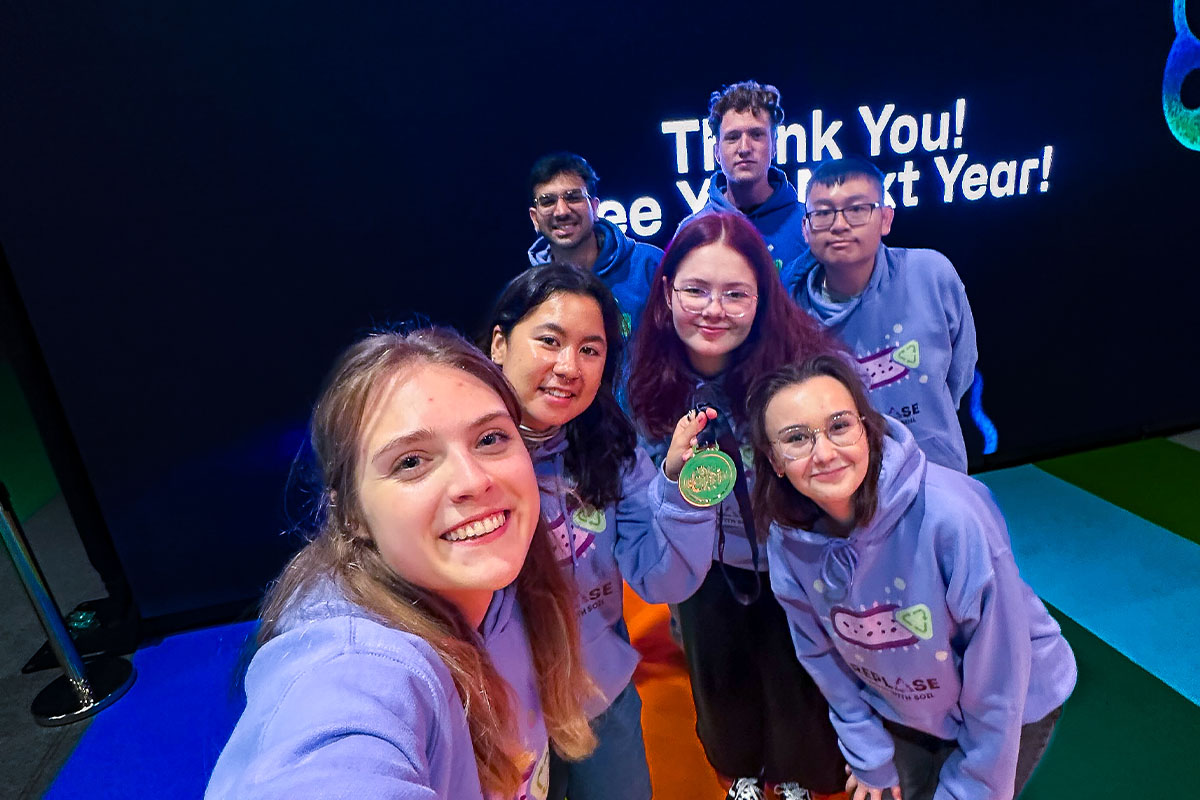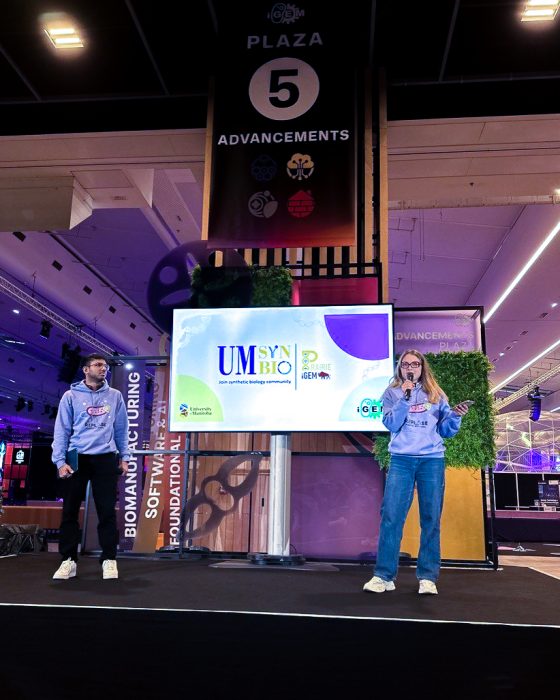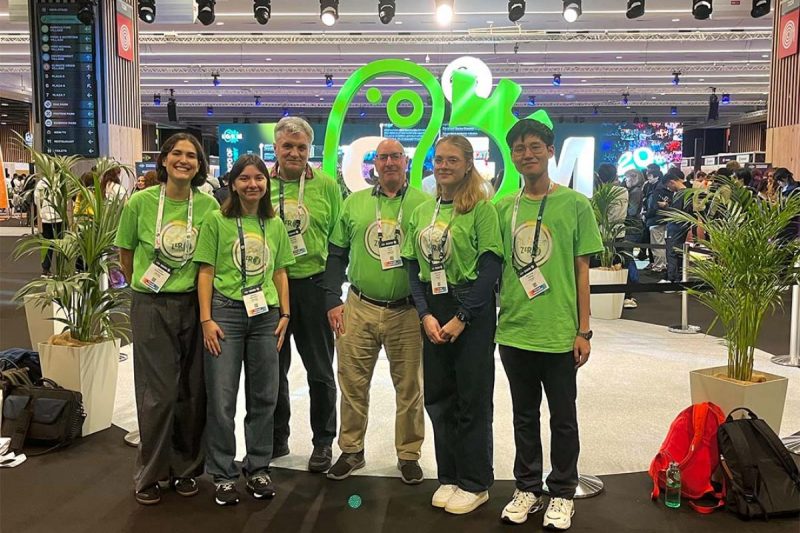
UM Prairie iGEM group photo.
Thought compostable PLA plastics was the solution to sustainability? Think again!
UM Prairie iGEM team wins gold medal finding a solution for plastic pollution!
Although sustainability seems to be the new trend, plastic pollution still remains a great threat to the environment and human health. Turns out those compostable coffee cups and food containers are rarely degraded even in standard composting conditions. The UM Prairie iGEM team strives to solve this problem and received the gold medal for the best new basic part award in the 2024 Grand Jamboree – the world expo of synthetic biology! The competition took place in October of 2024 in Paris, France and the UM Prairie iGEM team includes graduate students, postdoctoral fellows and research associates from the Faculty of Science, Price Faculty of Engineering and the Faculty of Agricultural and Food Sciences. Dr. Ned Budisa, professor and (Tier 1) Canada Research Chair in chemical synthetic biology and xenobiology in the Department of Chemistry, and Dr. David Levin, professor in the Department of Biosystems Engineering, lead the team.
In this interview, we talk with Oleksandra Havruk, an undergraduate student in the Genetics (Honours) program at the Faculty of Science and the UM Prairie iGEM student team lead about her experience in the 2024 Grand Jamboree and the team’s work.

UM Prairie iGEM in 2025 Grand Jamboree
Congrats on winning the gold medal and being nominated for the best new basic part award in the IGEM Grand Jamboree! Tell us about your project and what problem are you aiming to solve.
I’m sure it’s not big news, that plastic pollution is a huge pressing issue worldwide. To help minimize plastic pollution impact, the Canadian government introduced Single-use Plastics Prohibition Regulations (SUPPR), which bans the use of single-use plastic items like checkout bags, straws, cutlery etc. In turn, this forced Canadian consumers to switch to PLA plastics, which are considered compostable, but in standard composting conditions, are rarely degraded. Now, that creates a bigger issue, because we switched from recyclable plastics to materials, that you cannot recycle and can barely degrade. We couldn’t ignore it, so we decided to refine our 2023 PLAnetZero technology and create a new solution — RePLAse!
Last year, your team won a silver medal and was nominated for best part collection in the overgrad category. What have you been working on and improving since last year?

UM Prairie iGEM in 2024 Grand Jamboree
During the design phase of the PLAnetZero project, we mostly focused on scientific design and literature research. This equipped our project with extremely competitive innovative technologies, which were recognized by the iGEM community (Nomination for best part collection). However, what iGEM values the most, is community relations. There’s often a big gap between ambitious research projects and the actual feasibility or applications of these projects. It is crucial for researchers to constantly reach out to the community and adjust their projects accordingly to the community’s needs. This is exactly what we improved on this year, and won the gold medal!
How was the competition different this year?
This year iGEM introduced new villages such as Fashion & Cosmetics Village, Oncology Village and Infectious Diseases Village and gave each team an opportunity to not only present their projects but also give a speech about pressing issues or new initiatives. In terms of a general trend across all iGEM teams, there was a noticeable shift towards in silico modelling and design. I think this marks the beginning of a new era in scientific methods and highlights the importance of exploring bioinformatics tools, to keep up with innovations.
What do you hope to achieve in the future? What is next for UM Prairie iGEM?
We were extremely lucky to get strong support from the Faculty of Science and we look forward to our future collaborations. Another goal for the future is to make UM Prairie iGEM more collaborative and inclusive, engaging more with our community and addressing their problems more efficiently. We also want to involve more students from computer science, business, and social sciences alongside STEM, to give them an opportunity to work on interdisciplinary projects, which could be a valuable experience before coming out in the real world. We are also actively looking for ways to improve our bioinformatics tools and approaches, so any help or advice would be highly appreciated.
You can learn more about the UM Prairie iGEM team and their work on their project website.






